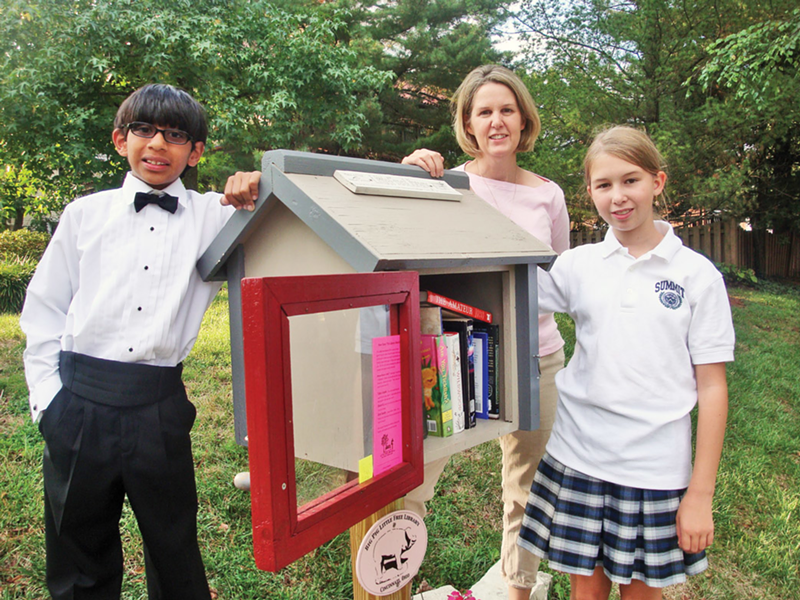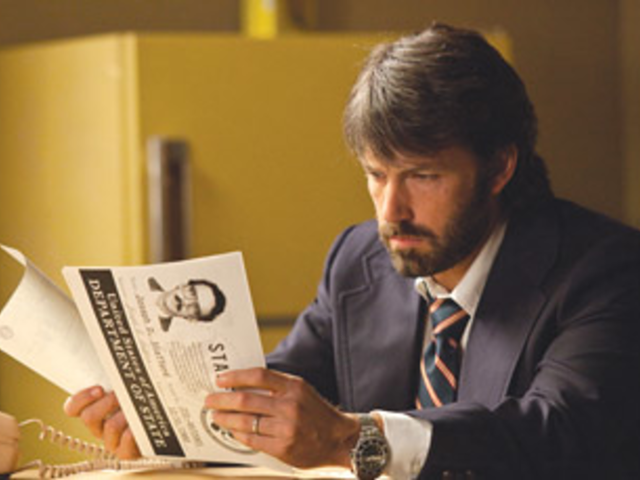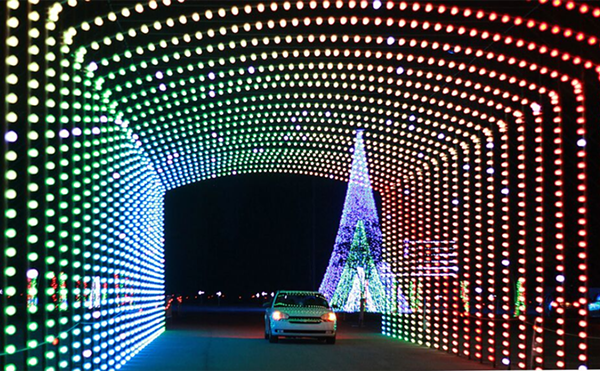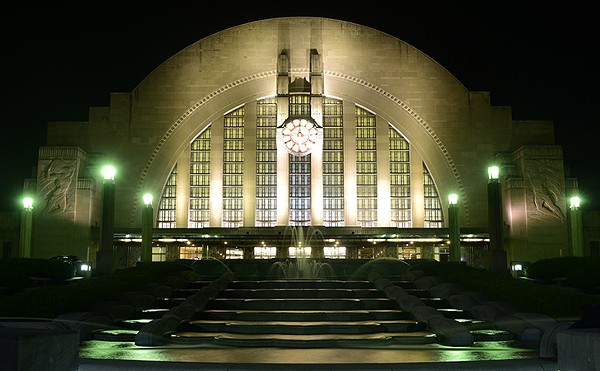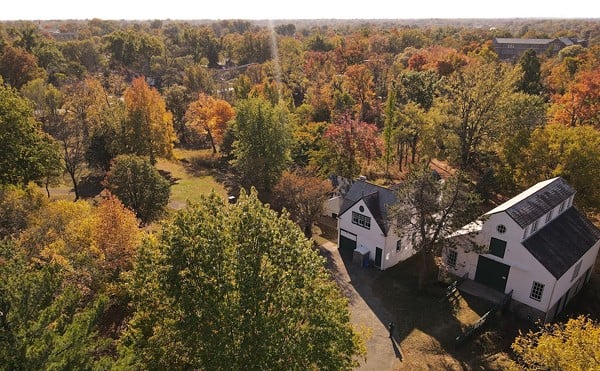T
here’s a little red house mounted to a wooden stand in front of Afsaneh Fowler’s home in Loveland. At first glance, it looks like a bird feeder or a dollhouse or maybe even a quirky mailbox. It’s actually her neighborhood library. And it’s not because the Cincinnati Public Library’s fiscal outlook has fallen, but rather that the relational stock in Fowler’s neighborhood has risen. This is a Little Free Library, a homemade, DIY, old-fashioned community investment that connects neighbors, books and ideas.
Fowler joined a new and growing movement in America when she built her library last spring. For several years she’s tended a vegetable garden that she shares with her neighbors. The library seemed like a logical next step.
“I think I am the only Iranian-American in my neighborhood,” Fowler says. “I met many of my neighbors through the garden and library. They know me by my name now.”
Fowler works at area hospitals as an interpreter for Afghan and Iranian refugees. Her love of reading and community was touched when she discovered the Little Free Library website. The project emerged within the past few years in Madison, Wis. It’s now a nationwide trend that is a sort of Hippie-Luddite backlash against the technological onslaught of smart phones, Kindles and the dumbed-down Newspeak of text messages. (don’t U jst h8 wot txt messages hav dn 2 d queen’s english?)
Like the other three folks in the Cincinnati area we could find who built their own front-yard libraries, Fowler got the idea from a news article and it just sang to her. Neighbors come and take a book or leave one. The collections are fluid and change based on what neighbors put into it. Fowler stocked hers with children’s books during the summer and changed her collection over to novels for adult readers last month.
“It’s not just mine, it’s everybody’s,” she says. “I hope everyone would come and use it. That is my wish.”
Maggie Gieseke’s library stands at a busy corner in Hyde Park. There’s a registry and pen tucked in a cubby alongside the books. The entries testify to the scores of runners, cyclists and neighborhood children who enjoy the addition to their neighborhood. Some entries are simple notes of appreciation. Others, from area kids, are requests for particular books: “More Harry Potter!”
“I’ve never had a book request from an adult, but the kids are not shy,” Gieseke says. “The kids crack me up because they want the number seven Harry Potter, they want more mystery books, adventure books or graphic novels. They’re very specific about it.
The Big Pig Little Library, as it’s been dubbed by Gieseke, holds about 20 books. That’s a common size for these projects. Gieseke’s, which might be the most patronized in the city due to its placement, gets a good share of its contents from its patrons, though she probably leaves more books in it than she finds. The community stewardship aspect of these libraries is a new concept to many folks, and if building the library is the spark of the movement, restocking the library as books are taken is sort of like tending the small fire.
Gieseke says, “People don’t often carry books with them when they’re out walking their dog or riding their bicycle but they’ll leave a note — ‘I’ll bring one back later. I took a book.’
“I love the concept,” she continues. “I love the simplicity of it. I love that it’s real books and that somebody had this book and can trade it with someone else. Hopefully, they’ll get just as much enjoyment out of it as your neighbor or your friend.”
Gieseke says she’s met neighbors who she probably would not have otherwise known because of the library.
“It’s so simple, so easy and it seems like everybody appreciates it,” she says.
Less trafficked and a bit harder to find, Scott Bruno’s library is filled with novels that Bruno once enjoyed and now wants to pass on. Letting go of a beloved book is tough, but it’s a genuine way of sharing, and a good collection makes it worthwhile for readers to come and find Bruno’s trove.
“I kind of live semi-rurally,” the Colerain resident says. “I didn’t want to put in leftover books that were one step away from Half-Price Books or Goodwill. I wanted books that were decent or interesting in there that I thought someone would read.”
Bruno says he’s met new acquaintances by way of his library. One fellow from Kentucky, another Free Librarian, drove out to Bruno’s home, traded books and left him a note to say hello. Bruno met Heather Herman this way, too. She’s maintained a library at her home in Northside since hearing an NPR piece about the movement earlier this year. Herman’s library is made from a large glass lantern.
“I’m a big reader myself, as are my children and a lot of my neighbors,” she says. “I have a lot of books in my house and I wanted to see what would happen. Would people take the books? Would they bring books? “
Herman says there’s been a good back and forth among the people in her neighborhood and only once has someone come along and cleaned her out all at once.
“When I’m on my porch I encourage people who glance at it and are not really sure what it is,” she says. “I say, ‘Just go ahead and take a book.’ It’s great.”
Herman is moving out of the city next month and, while her new home outside of Minneapolis will be getting its first Little Free Library, Cincinnati will be down to just three unless she can convince the family buying her home to continue what she started. Her neighborhood’s newest tradition and her love of reading are torches she’s trying to pass on.
Scott Bruno’s library is located at 6689 Mullen Road, Colerain; Afsaneh Fowler’s library is at 6778 Little River Lane, Loveland; Maggie Gieseke’s library is at 2552 Observatory Ave., Hyde Park; and Heather Herman’s library is at 4244 Brookside Ave., Northside. www.littlefreelibrary.org

